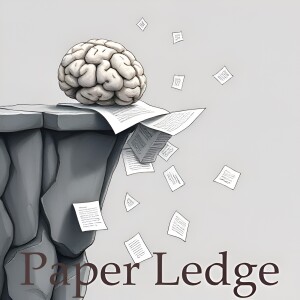

Machine Learning - Agentic Context Engineering Evolving Contexts for Self-Improving Language Models
Hey PaperLedge crew, Ernis here, ready to dive into another fascinating piece of research! Today, we're tackling a paper about making Large Language Models, or LLMs – think of them as super-smart AI text generators – even smarter and more reliable.
Imagine you're training a dog. You could surgically rewire its brain (that's like updating the LLM's "weights," a complex and expensive process), or you could teach it tricks by giving it instructions and feedback. This paper focuses on the latter approach, specifically on how we can feed these LLMs the right instructions and information to make them perform specific tasks better. It's all about context adaptation.
Now, the challenge is, previous methods often fall into a couple of traps. First, there's brevity bias. Think of it like trying to cram a whole textbook into a single sticky note – you lose a lot of valuable detail! The LLM gets a concise summary, but misses the nuances and domain-specific knowledge it really needs.
Second, there's context collapse. Imagine playing a game of telephone. With each whispered retelling, the original message gets distorted and details disappear. Similarly, when LLMs repeatedly rewrite and update their instructions, important information can get lost over time. It's like the AI is slowly forgetting what it's supposed to do!
That's where ACE, or Agentic Context Engineering, comes in. Think of ACE as giving the LLM a super-organized, constantly evolving playbook. This playbook isn't just a static list of instructions; it's a dynamic document that grows and improves over time. The key is how ACE manages this playbook:
- Generation: The LLM starts by creating initial strategies or instructions.
- Reflection: It then analyzes its own performance, figuring out what worked and what didn't. It's like the LLM is grading its own homework!
- Curation: Finally, it carefully updates the playbook, adding new insights, refining existing strategies, and removing anything that's no longer helpful.
This modular process prevents context collapse because the updates are structured and incremental, meaning the LLM isn't just rewriting everything from scratch each time. It preserves detailed knowledge and can handle much larger and more complex contexts. Think of it like building a house brick-by-brick, instead of tearing it down and starting over every day.
So, what were the results? Well, ACE significantly outperformed existing methods in both general agent tasks and more specialized domains like finance. We're talking about a 10.6% improvement on general agent tasks and an 8.6% improvement in finance! Plus, it did all this with lower latency and lower rollout costs. That means it was faster and cheaper to adapt the LLM using ACE.
"ACE optimizes contexts both offline (e.g., system prompts) and online (e.g., agent memory), consistently outperforming strong baselines"What's even more impressive is that ACE can adapt effectively without needing explicitly labeled training data. It learns from the natural feedback it gets during execution. Imagine learning to ride a bike without anyone telling you exactly what to do – you just figure it out by trying and adjusting! The researchers even pitted ACE against a top-ranked, production-level agent on the AppWorld leaderboard and it either matched or surpassed it on certain tests, even though it was using a smaller, open-source model!
So, why does this matter? Well, for:
- AI Researchers: ACE offers a more scalable, efficient, and self-improving way to build LLM-powered systems. It shows that we can achieve significant performance gains simply by improving how we manage context.
- Businesses: ACE could lead to more effective and reliable AI assistants, chatbots, and other LLM-based applications. Imagine a customer service bot that constantly learns and improves its ability to help customers, without requiring constant human intervention.
- Everyone: This research points towards a future where AI systems are more adaptable, efficient, and less prone to "forgetting" important information. It could lead to more helpful and trustworthy AI tools that can assist us in various aspects of our lives.
Ultimately, the paper argues that by focusing on creating comprehensive, evolving contexts, we can unlock the full potential of LLMs and build truly scalable and efficient AI systems.
Now, here are a couple of thought-provoking questions that come to my mind:
- How might ACE be vulnerable to biases present in the data used for generation, reflection, and curation? Could this lead to a self-reinforcing cycle of biased outputs?
- Could the "playbook" approach of ACE eventually become too complex and unwieldy, making it difficult to understand and debug? What strategies could be used to prevent this?
Alright learning crew, that's a wrap on this episode's deep dive! I hope you found ACE as fascinating as I did. Until next time, keep learning!
Credit to Paper authors: Qizheng Zhang, Changran Hu, Shubhangi Upasani, Boyuan Ma, Fenglu Hong, Vamsidhar Kamanuru, Jay Rainton, Chen Wu, Mengmeng Ji, Hanchen Li, Urmish Thakker, James Zou, Kunle Olukotun
More Episodes
All Episodes>>Create Your Podcast In Minutes
- Full-featured podcast site
- Unlimited storage and bandwidth
- Comprehensive podcast stats
- Distribute to Apple Podcasts, Spotify, and more
- Make money with your podcast












